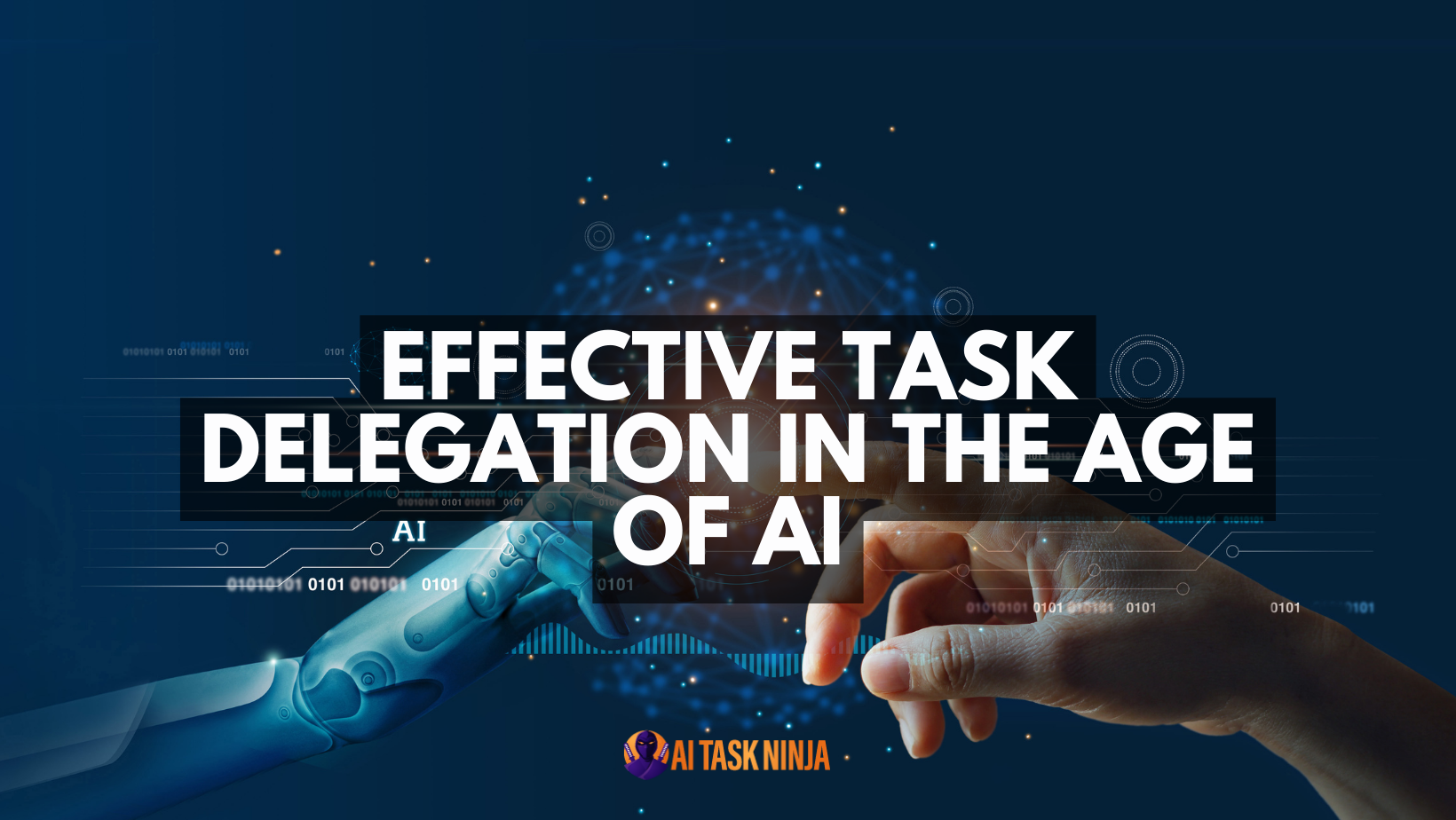Effective Task Delegation in the Age of AI
Admin / March 23, 2024

Delegation has always been a cornerstone of effective leadership; however, its significance is magnified as AI reshapes job roles and responsibilities. In an environment where AI automates routine tasks, streamlines workflows, and provides data-driven insights, successful delegation hinges on understanding this evolving landscape and maximizing this powerful technology.
Why Delegation Matters Even More with AI
- Focus on High-Value Work: AI excels at handling repetitive, low-level tasks, allowing leaders and team members to focus on strategic initiatives, innovation, and the nuanced work that demands human judgment and creativity.
- Unlocking AI's Potential: Delegating tasks effectively to AI systems requires a strong understanding of their capabilities and limitations. Leaders need to be able to identify which tasks are best suited for automation and how humans and machines can work in tandem.
- Building a Collaborative Culture: In an AI-driven workplace, delegating to both human team members and AI tools becomes paramount for success. Leaders must foster a collaborative environment where humans and machines are seen as partners.
Keys to Effective Delegation in an AI-Powered Workplace
- Clearly Define Tasks and Outcomes: Before delegating, ensure tasks have clear objectives, success metrics, and expected timelines. This clarity is even more crucial when delegating to AI systems.
- Match Tasks to Capabilities: Analyze both human and AI capabilities. Delegate tasks to the best-suited recipient, ensuring optimal efficiency and outcomes. AI is ideal for data analysis, pattern recognition, and repetitive processes. Humans excel in critical thinking, relationship building, and tasks demanding empathy.
- Provide Context and Resources: Whether delegating to a person or an AI tool, providing relevant context and background information is essential. With AI, this involves giving the system access to necessary data and clear parameters.
- Utilize AI for Delegation Support: AI-powered tools can help identify potential candidates for delegation within a team, analyze their skills and workload, and even suggest task breakdowns.
- Establish Trust and Feedback: Build a culture of trust, where team members feel comfortable taking on delegated tasks and providing feedback. For AI systems, implement regular reviews to ensure algorithms are functioning as intended and to make adjustments.
Example: Enhancing Customer Service with AI Delegation
- Task: Respond to routine customer inquiries.
- Delegation: AI-powered chatbot to handle initial queries and categorize requests. Human customer service representatives intervene for complex issues or escalations.
- Benefits: 24/7 availability, reduced wait times, allows human agents to focus on high-touch interactions.
The Future of Delegation
As AI continues to evolve, so too will delegation strategies. We'll see leaders:
- Delegating More Abstract Tasks: AI will become capable of handling tasks requiring creativity and judgment, requiring leaders to adapt their delegation approach.
- Focusing on Human Skills: Leadership development will emphasize the human skills that can't be replicated by AI, such as empathy, critical thinking, and strategic communication.
- Adopting a Hybrid Model: Leaders will orchestrate a dynamic model of delegation, seamlessly shifting tasks between human team members and AI systems based on context.
The AI revolution isn't about eliminating the need for delegation. Instead, it presents leaders with an opportunity to redefine task delegation as a strategic tool for maximizing productivity, fostering human-AI collaboration, and driving innovation.